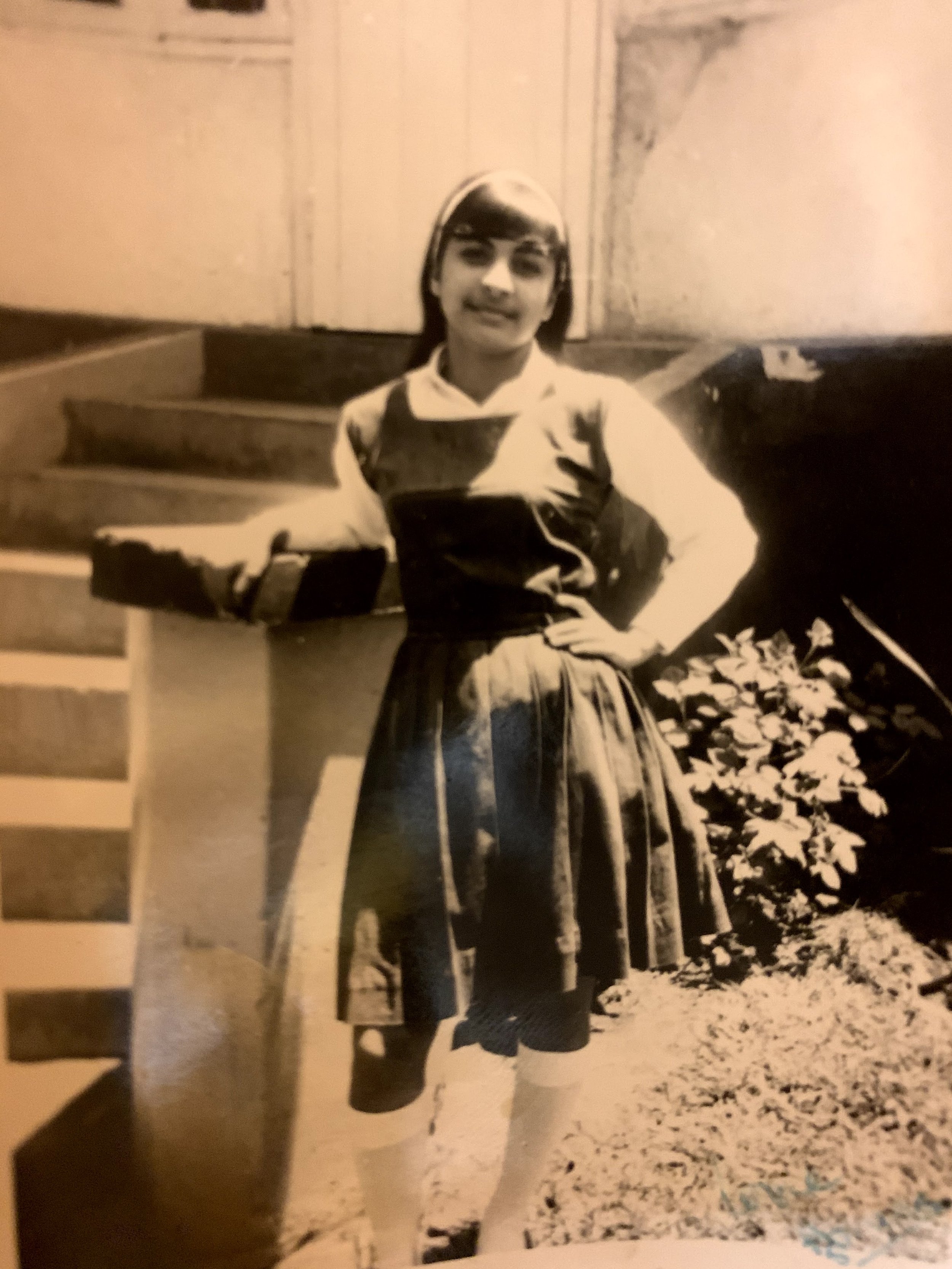Azmina Jiwa—My Mother
“The First Moments”
“I was 18-years-old, studying in England, and had gone back to Uganda for the holidays and all this hoo-hah was going on. Everyone had to start queuing up and trying to verify whether they were still citizens of Uganda, who might be exempt from expulsion, or whether they could go to England because Uganda had been a protectorate of the British Empire until 10 years earlier. My dad, Rajabali Amlani, just said to me: “I think you better get on the next plane because we haven’t got any clue what’s going to happen and we don’t want you to not finish your education there.” Basically, I cut my holiday short and I flew back to England. During all that time, of course there was a lot of uncertainty.
I didn’t know what was happening to my family. All their money was seized by the government. That also meant all the money stopped coming through for my education and my living. Luckily I was staying with a family who were friends with my uncle, Afzal. So they didn’t make me homeless, otherwise I could have easily been homeless.”
“I Got A Loan”
“I couldn’t carry on with my education because my family’s money had been seized by the Ugandan government. But I heard that the Ismaili Council was going to help us out so I contacted them and they said that if I was following a career then the bank would give me a loan with 2.5% interest and that way I could then carry on with my education. They would also arrange with Social Security to give us money for our living expenses. So I started looking for what career can I take with the one-year of A-Levels I had from Uganda. They gave me various options and I said: “Okay, I think I will take up Chiropody.” Then I got all the paperwork done and I got my loan and found a hostel to live in. They were not giving me much so I had to live in accommodation that was very cheap so I was living with five girls in a dormitory in a YWCA. It was £6 per week, including breakfast and dinner. For everything extra, I worked three or four evenings a week. I would do washing up of the dishes in the hostel, I would go and do some clerical work in the evening sending out doctor’s journals and I would do cleaning and ironing at somebody’s house. The pay then was 50 pence an hour.”
“I Didn’t Know Where My Family Was”
“The next holiday came and that’s when the 90 days was nearly over and people had to move out and I didn’t know where my parents were. I had to find money and keep busy in my holidays so I basically took the job of cleaning the hostel because at least one or the other of the cleaning ladies would be off during the holidays. So I became the hostel cleaner. And I also took a job with the cook on Sunday morning, helping her to cook breakfast at like 6am for the people staying the hostel where I was living. So that’s how I passed my holidays but also there was a lot of uncertainty because by this time, as I learnt later, that my parents and siblings had become refugees and although they had Ugandan citizenship, they still had to leave and they were refugees and they were in Italy. For almost two months I didn’t know what was happening or where they were. Then I heard from them and found out they were refugees in Italy. They didn’t know where they were going to go at that time, because no country had accepted them. Then I think after three months, America accepted them and they moved there.”
▪️Part of a series of stories published exactly five decades on from the 90 days that South Asians were given to leave Uganda, their homes and birthplaces for over three generations.


